#jean pierre boyer
Explore tagged Tumblr posts
Text

Gene Tierney, 1940s
"Among those living sculptures, one ray of light stood out: Judy Garland, the Piaf of the New World. All the misery of mankind seemed to float in her eyes.
On a sofa sat the loveliest creature: Gene Tierney. I was trying to flirt with her when Charles Boyer took me aside: “Watch your step, she’s a married woman. It simply isn’t done here.” What a strange country!"
-Jean-Pierre Aumont, Sun and Shadow, autobio (1977)
72 notes
·
View notes
Text
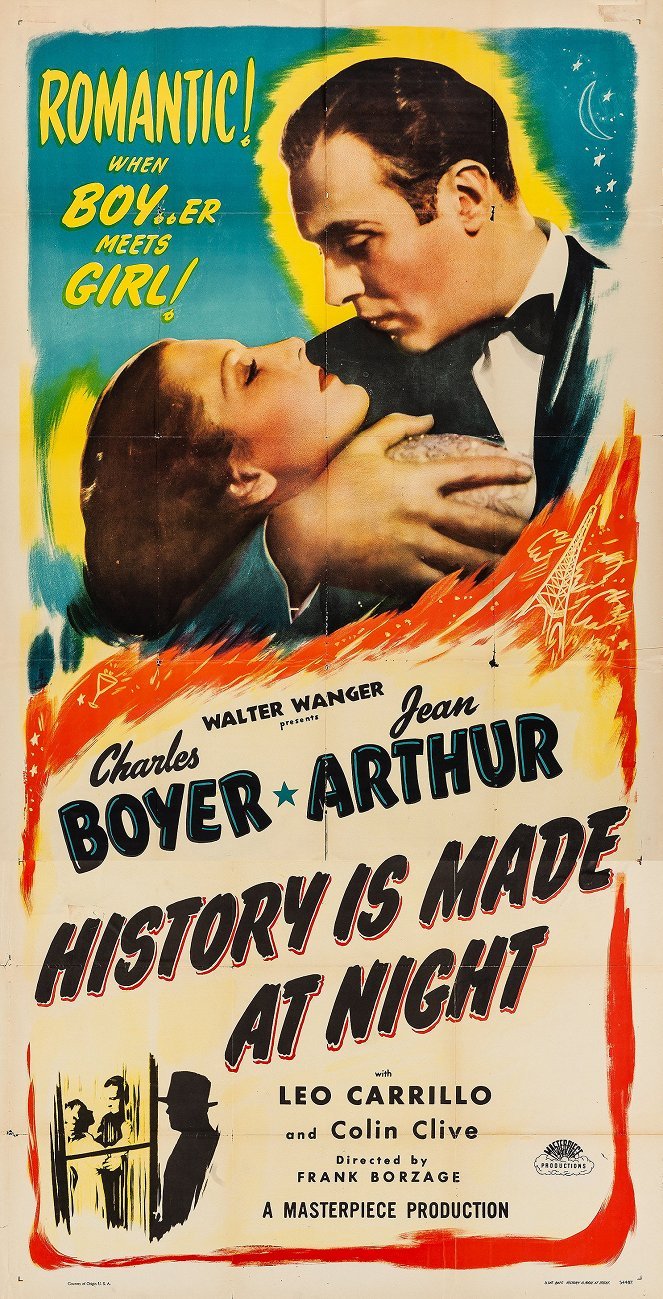
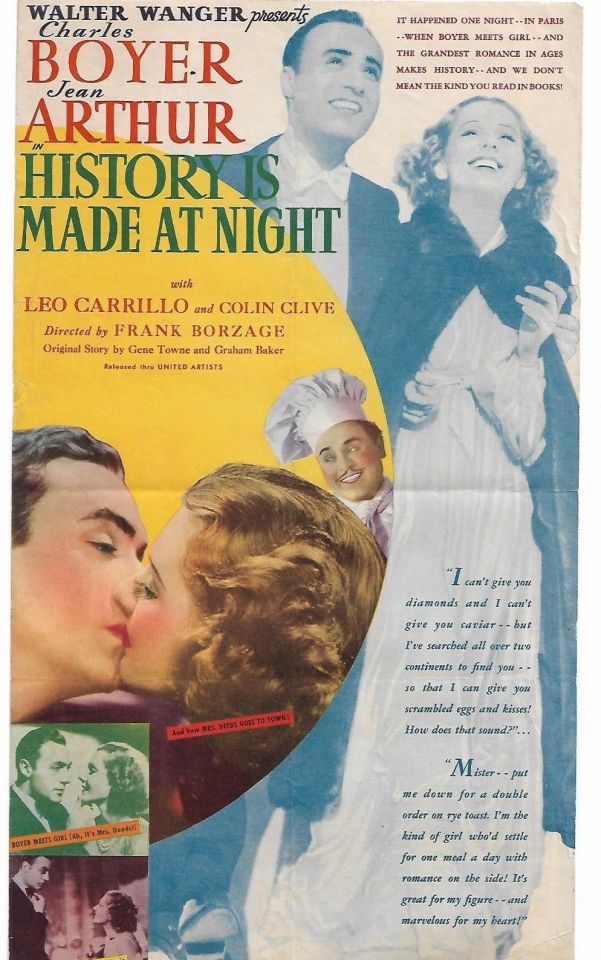

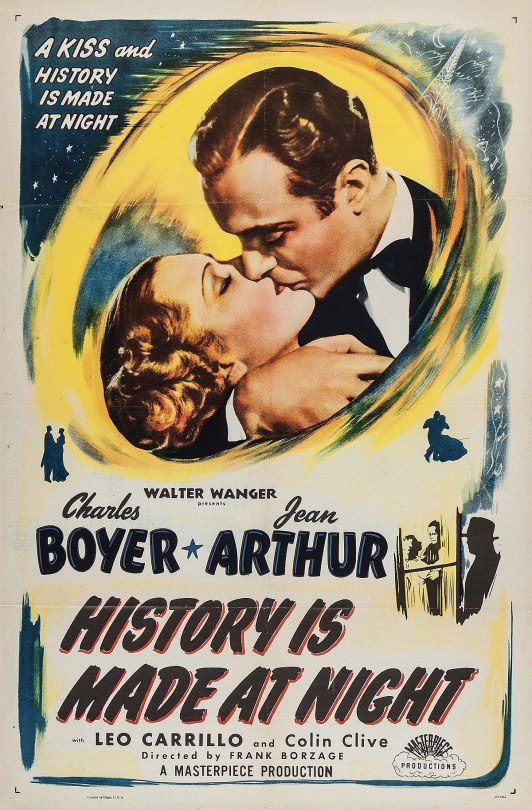
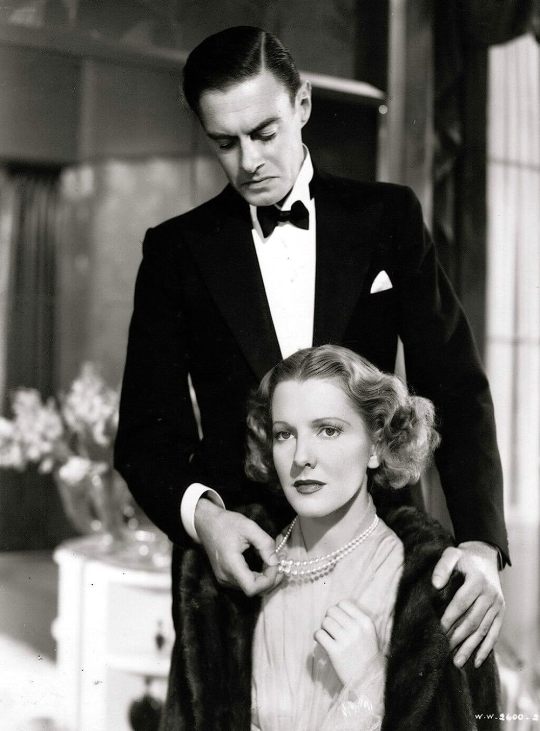
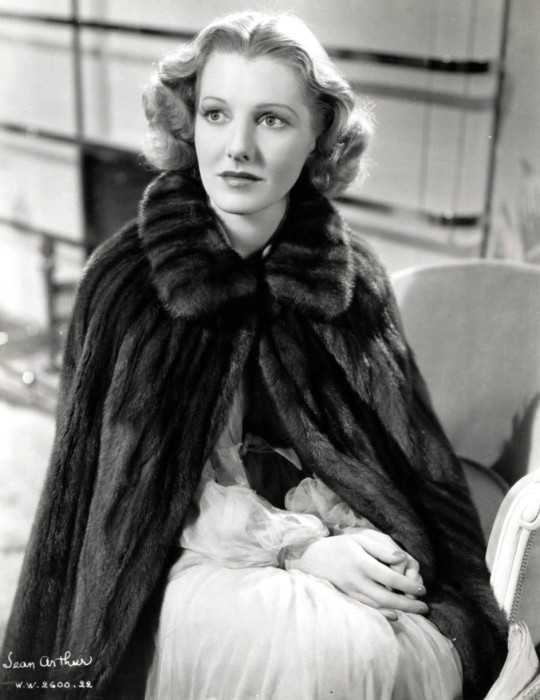
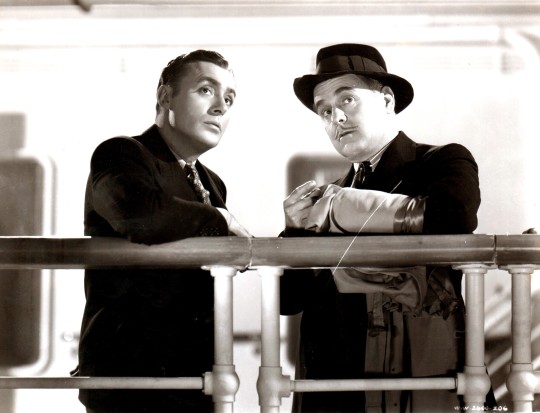


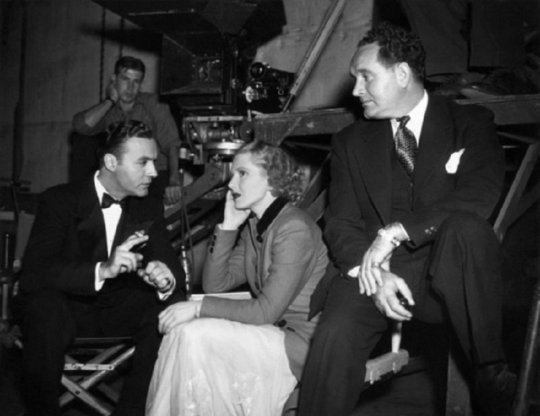
History Is Made at Night (1937) Frank Borzage
July 10th 2023
#history is made at night#1937#frank borzage#jean arthur#charles boyer#leo carrillo#colin clive#pierre watkin#ivan lebedeff
12 notes
·
View notes
Text
C'est pour leur apprendre
2325. la bible, - - - (- - -, (Frédéric Boyer), la bible (nouvelle traduction)) (Bayard, Médiaspaul, 2001, 2005)
⌘ Wiki
#(X)#Frédéric Boyer#Olivier Cadiot#Pierre Alferi#Marie NDiaye#Jacques Roubaud#François Bon#Jean Echenoz#Le Compost#Légende
4 notes
·
View notes
Text

Roger Pierre-Brigitte Bardot "Le trou normand" 1952, de Jean Boyer.
4 notes
·
View notes
Text

Jean-Pierre Boyer (15 February 1776 – 9 July 1850)
0 notes
Photo

Federation of the Andes
The Federation of the Andes was a nation proposed by Simón Bolívar in 1826 that would consist in a union between the nations “liberated” by him.
There was a proposal to organize the Federation in 6 states: Colombia would be divided in 3 states (Ecuador, Nueva Granada and Venezuela), while Peru would be divided in two states (North and South). It was also planned to give away the Peruvian coast from Tacna to Tarapaca to Bolivia, exchanging it for Apolobamba and Coapacabana. Each state would be divided into departments, the departments into provinces and the provinces into cantons (not shown). As for the capital, it would be Quito or Guayaquil.
Regarding the government, there would be a "Supreme Chief for Life" with the power to inherit the leadership to whomever he wanted, a tricameral federal parliament and an authoritarian, centralized and militarized administration. It was a monocracy strongly inspired by the Consulate of Napoleon Bonaparte and the regime of the Haitian Jean Pierre Boyer.
The project failed due to the rejection of the Peruvians and the political crisis that occurred in Colombia. In January 1827, while Bolívar was in Colombia to defeat the separatist attempts, an uprising overthrew his government in Peru and the Bolivarian Constitution was abolished in June of that same year, prohibiting his entry and losing all his influence in Peru. The next country to lose Bolivarian influence would be Bolivia, after the Peruvian invasion in 1828, which ended with the overthrow of Antonio José de Sucre, Bolívar's right-hand man. Finally, Gran Colombia would end up completely disintegrating in 1830.
65 notes
·
View notes
Text







En l'honneur du Nouvel An Chinois qui nous fait passer dans l'Année du Serpent, en voici quelques-uns !
Marseille - Bastide Borély, Musée des Arts Décoratifs, de la Faïence et de la Mode, - "La Grande Helvétie"
Louvre-Lens, Expo "Animaux et Pharaons" -Nicolas Huet, dessin pour "Description de l'Egypte - l'Aspic", 1809
Marseille, musée d'histoire - canne sculptée par Léon-Pierre Boyer, dans les tranchées
Lille, Hospice Comtesse - tête de Méduse
Louvre-Lens - table, marbre - Florence, 1668
Colmar (Alsace) - Maison des Têtes (Kopfhüs)
Marseille, MuCEM, Fort Saint-Jean - expo "Trophées et Reliques" - Michel Carnino - bâton de berger - 1952
#serpent#année du serpent#nouvel an chinois#marseille#bastide#bastide borély#musée des arts décoratifs de la faïence et de la mode#louvre-lens#musée d'histoire#lile#hospice comtesse#colmar#alsace#kopfhüs#fort saint-jean#trophées et reliques#animaux et pharaons#grande hélvétie#tapisserie#papier peint#suisse#animaux et pharaon#napoléonien#nicolas huet#description de l'égypte#ww1#tranchées#canne#méduse#gorgone
6 notes
·
View notes
Text
i wonder whether jean-pierre boyer—president of haiti and the first head of state to recognise the independence of greece—was aware of the historically warm relations between france and turkey. obv the franco-ottoman alliance was dead in the water by the 1820s, but i like to think boyer was led by the idea of like... an alliance of indentured nations against the paris-istanbul axis, or something, when he chose to extend his recognition to the fledgling greek state
4 notes
·
View notes
Text

Paris brûle-t-il? Paris está em chamas? 1966. Direção: René Clément. Música: Maurice Jarre. Elenco: Jean Paul Belmondo, Alain Delon, Charles Boyer, Leslie Caron, Jean Pierre Cassel, Kirk Douglas, Yves Montand, Simone Signoret, Orson Welles, Jean-Louis Trintignant, Glenn Ford, Anthony Perkins.
Durante a 2ª Gerra Mundial, Paris foi ocupada pelos nazistas (1940-1944). Quando a guerra já estava perdida para a Alemanha e o avanço dos aliados para recuperar a capital francesa era inevitável, partiu uma ordem do próprio Hitler para incendiar Paris totalmente, incluindo seus monumentos e museus. Entretanto, o próprio comandante alemão em Paris não acatou esta ordem, pois considerou inútil tal sacrifício.
3 notes
·
View notes
Text
people who signed the letter in support of depardieu (an abuser):

Benoit Poelvoorde (actor), Nathalie Baye (actress), Carole Bouquet (actress), Jacques Dutronc (singer), Charlotte Rampling (actress), Yvan Attal (actor and director), Jacques Weber (actor), Bertrand Blier (director ), Emmanuelle Seigner (actress), Roberto Alagna (singer), Michel Fau (actor and director), Victoria Abril (actress), Dominique Besnehard (actor and producer) Carla Bruni (singer), Pierre Richard (actor), Clémentine Célarié (actress), Gérard Darmon (Actor), Rudy Ricciotti (architect), Christophe Barratier (director), Arielle Dombasle (singer), Francis Veber (director), Patrice Leconte (director), Brigitte Fossey (actress), Boualem Sansal ( writer), Charles Berling (actor), Yannis Ezziadi (actor and author) Philippe Caubère (actor), Vincent Perez (actor), Myriam Boyer (actress), Antoine Dulery (actor), Afida Turner (singer), Paolo Branco (producer ), Jean-Marie Rouart, of the French Academy (writer), Josée Dayan (director), Joel Seria (director), Bernard Murat (director), Serge Toubiana (film critic and former director of the Cinémathèque française) , Catherine Millet (writer), Jacques Henric (writer), Stéphanie Murat (director), Marie-France Brière (producer and director), Daniel Humair (musician and painter), Judith Magre (actress), David Bélugou (theater decorator) , Marie Beltrami (stylist), Tanya Lopert (actress), Jean-Claude Dreyfus (actor), Chiara Muti (actress), Jean-Marie Besset (playwright), Stéphane Druet (director), Christine Boisson (actress), Karine Silla-Perez (actress and director), Myriam Boisaubert (poet), Lilian Euzéby (painter), Marion Lahmer (actress).
Nadine Trintignant announced this December 29 in “Le Point��� that she was withdrawig her signature from the platform.
"Hi ! About Depardieu and the letter: yes, a lot of people such as Nadine Tratignant and Carole Bouquet withdrawed their signature. Not because supporting the victims but because the author of the letter is far right (in french "d'extrême droite) and national journal say it. They still support Depardieu. For example, Carole Bouquet was a great supporter of Depardieu few days ago in a lot of radio/tv show."
2 notes
·
View notes
Text
Luis Minervino brilla en doble papel en la nueva serie "Los Trinitarios"
El destacado actor dominicano Luis Minervino se enfrenta a un reto monumental en su carrera al interpretar dos papeles protagónicos en la nueva serie "Los Trinitarios". Minervino da vida a Jean Pierre Boyer y Juan Pablo Duarte
El destacado actor dominicano Luis Minervino se enfrenta a un reto monumental en su carrera al interpretar dos papeles protagónicos en la nueva serie “Los Trinitarios”. Minervino da vida a Jean Pierre Boyer y Juan Pablo Duarte, dos figuras centrales en la historia de la independencia dominicana. El desafío no se limitó a los roles interpretativos, sino que también involucró la innovadora…
0 notes
Text
The wife of an American doctor suddenly vanishes in Paris and, to find her, he navigates a puzzling web of language, locale, laissez-faire cops, triplicate-form filling bureaucrats and a defiant, mysterious waif who knows more than she tells. Credits: TheMovieDb. Film Cast: Dr. Richard Walker: Harrison Ford Michelle: Emmanuelle Seigner Sondra Walker: Betty Buckley Wino: Dominique Pinon Le Grand Hotel Manager: Jacques Ciron Williams: John Mahoney Shaap: Jimmie Ray Weeks Peter: David Huddleston Edie: Alexandra Stewart Kidnapper: Yorgo Voyagis Taxi Driver: Djiby Soumare Bellboy 2: Roch Leibovici Desk Clerk: Dominique Virton Gaillard: Gérard Klein Bellboy: Stéphane D’Audeville Hall Porter: Laurent Spielvogel Hall Porter: Alain Doutey Tourist: Louise Vincent Hotel Detective Le Grand Hotel: Patrice Melennec Restroom Attendant: Ella Jaroszewicz Florist: Joëlle Lagneau Florist: Jean-Pierre Delage Cafe Owner: Marc Dudicourt Waiter: Artus de Penguern Desk Cop: Richard Dieux Inspector: Yves Rénier U.S. Security Officer: Robert Ground Marine Guard: Bruce Lester-Johnson U.S. Embassy Clerk: Michael Morris U.S. Embassy Clerk: Claude Doineau Blue Parrot Barman: André Quiqui Rastafarian: Thomas M. Pollard Dede Martin: Böll Boyer TWA Clerk: Tina Sportolaro Extra (uncredited): Angela Featherstone Taxi Driver Who Hands Over the Matches to Dr. Walker (uncred: Roman Polanski Bellboy 3: Alan Ladd Film Crew: Casting: Bonnie Timmermann Original Music Composer: Ennio Morricone Assistant Art Director: Gérard Viard Writer: Gérard Brach Writer: Roman Polanski Producer: Thom Mount Director of Photography: Witold Sobociński Costume Design: Anthony Powell Casting: Margot Capelier Editor: Sam O’Steen Additional Writing: Robert Towne Stunt Double: Vic Armstrong Production Design: Pierre Guffroy Production Sound Mixer: Jean-Pierre Ruh Sound Re-Recording Mixer: Jean-François Auger Sound Editor: Jean Goudier Hairstylist: Jean-Max Guérin Makeup Artist: Didier Lavergne Supervising Sound Editor: Laurent Quaglio Producer: Tim Hampton Additional Writing: Jeff Gross Sound Effects: Jean-Pierre Lelong Sound Re-Recording Mixer: Dean Humphreys Assistant Art Director: Albert Rajau Choreographer: Derf La Chapelle Stunt Double: Wendy Leech Movie Reviews: JPV852: Movie starts off well enough with the mystery element but afterward tonally felt a bit off (veered into moderate comedy at points). Ford is fine as was Emmanuelle Seigner, though I wonder if this could’ve used the eye of Brian De Palma rather than Polanski. **3.25/5** kevin2019: “Frantic” is an engrossing and well made film that easily builds up a genuine sense of mystery and intrigue from the very beginning. It is incredibly well crafted throughout with an immediately interesting opening gambit and Roman Polanski is a seasoned director and he knows precisely how to create a natural and rhythmic momentum to the proceedings and to then successfully maintain it at a certain level without any evidence of indecision on his part in terms of how the film ought to proceed in order to achieve its maximum potential and effectiveness. This results in a splendid film that effortlessly retains a compelling quality until the very end and it provides the perfect showcase for the romantic city of Paris even though it also makes you pause for thought about visiting there on Valentine’s Day.
#doctor#espionage#france#hotel room#husband wife relationship#intrigue#man looking for wife#man woman relationship#married couple#missing wife#neo-noir#Paris#Top Rated Movies#wife
0 notes
Text

The Baron de Mackau of France presenting demands to Jean-Pierre Boyer, President of Haiti, in 1825
In recent weeks, thousands of refugees from Haiti have arrived at the U.S.-Mexico border, desperate for a better life. Most left Haiti years ago, after a 2010 earthquake ravaged what was already one of the most dismal economies in the world. They had originally settled in places like Chile, but the politics of the region have made them feel unwelcome, discriminated against, and fearful of the future.
The Haitian refugees hoped the United States, under President Biden, would offer them a lifeline. They were wrong. The Biden administration has been sending thousands back to Haiti, even though Haiti is a disaster zone, and many of the refugees fled it years ago. Some of those the U.S. government forcibly sent to Haiti are kids who have never lived there.

Tens of thousands of migrants, many of them Haitians previously living in South America, have arrived in recent weeks in Mexico hoping to enter the United States.
ALFREDO ESTRELLA/AFP via Getty Images
The Haiti that refugees are being sent back to is a nation in crisis. With its unlucky coordinates on the map and its poor infrastructure, Haiti has been devastated by multiple hurricanes and earthquakes in recent years, including a 7.2 magnitude earthquake in August. In July, Haiti's president, Jovenel Moïse, was assassinated by Colombian mercenaries, some of whom had received U.S. military training. A Florida-based security company reportedly connected whoever wanted Moïse killed with the mercenaries, but the details of why Moïse was killed and who directed the mercenaries are still murky.
What is clear, however, is that Moïse's assassination continues Haiti's centuries-long political instability. In 2015, the World Bank concluded that Haiti's biggest political problem is that "a social contract is missing between the state and its citizens." Ambassador Foote, in his resignation letter, blasted the United States and other nations for contributing to this problem for the umpteenth time by unabashedly backing Moïse's unelected replacement, Ariel Henry. Henry was appointed Prime Minister by Moïse in July, and took on the additional role of President after Moïse's assassination. Haiti's chief prosecutor said he found evidence linking Henry to the president's killing, and Henry promptly fired him. Some Haitian authorities have asked Henry to step down and pleaded with the international community to stop supporting him. "This cycle of international political interventions in Haiti has consistently produced catastrophic results," Foote wrote.
Haiti is one of the poorest nations in the world, and rich countries have their fingerprints all over the nation's stunted development. The United States worked to isolate a newly independent Haiti during the early 19th century and violently occupied the island nation for 19 years in the early 20th century. While the U.S. officially left Haiti in 1934, it continued to control Haiti's public finances until 1947, siphoning away around 40% of Haiti's national income to service debt repayments to the U.S. and France.
Much of this debt to France was the legacy of what the University of Virginia scholar Marlene Daut calls "the greatest heist in history": surrounded by French gunboats, a newly independent Haiti was forced to pay its slaveholders reparations. You read that correctly. It was the former slaves of Haiti, not the French slaveholders, who were forced to pay reparations. Haitians compensated their oppressors and their oppressors' descendants for the privilege of being free. It took Haiti more than a century to pay the reparation debts off.
The Tragic Hope of Revolutionary Haiti
Haiti won its independence from France in 1804, and it was almost immediately made a pariah state by world powers. It was an independent, black-led nation — created by slaves who had cast aside their chains and fought their oppressors for their freedom — during a time when white-led nations were enforcing brutal, racist systems of exploitation around the world.
Haiti, then known as Saint-Domingue, had been the crown jewel of the French empire. It was the most lucrative colony in the whole world. French planters forced African slaves to produce sugar, coffee, and other cash crops for the global market. The system seemed to work well. That is, until the French and American revolutions helped to inspire, in 1791, what became the world's largest and most successful slave revolt. Against all odds, the slaves won. Former slaves sent slaveholders scurrying to France and America — and Haitians successfully fought back subsequent efforts to re-enslave them. Haiti was the first nation to permanently ban slavery.
But as a nation of freed black slaves, Haiti was a threat to the existing world order. President Thomas Jefferson worked to isolate Haiti diplomatically and strangle it economically, fearing that the success of Haiti would inspire slave revolts back home. With the invention and spread of the cotton gin, slavery was becoming much more lucrative at the very same time a free Haiti was coming into existence, and slaveholders in the United States and other countries clung to and expanded the inhumane means of production. Haitian success was perceived as a threat to this system for decades, and the United States didn't officially recognize Haiti until 1862, as slavery began being abolished.
[Editor's note: This is an excerpt of Planet Money's newsletter. You can sign up here.]
During Haiti's critical period of development, France intervened even more directly than the U.S. to thwart its success. In July 1825, the French King, Charles X, sent an armed flotilla of warships to Haiti with the message that the young nation would have to pay France 150 million francs to secure its independence, or suffer the consequences. That sum was 10 times the amount the United States had paid France in the Louisiana Purchase, which had doubled the size of the U.S.
Almost literally at gunpoint, Haiti caved to France's demands in order to secure its independence. The amount was too much for the young nation to pay outright, and so it had to take out loans with hefty interest rates from a French bank. Over the next century, Haiti paid French slaveholders and their descendants the equivalent of between $20 and $30 billion in today's dollars. It took Haiti 122 years to pay it off. Professor Marlene Daut writes it "severely damaged the newly independent country's ability to prosper."
Righting The Wrongs
After the 2010 earthquake completely devastated Haiti, scholars and journalists wrote a letter to the French president demanding that France pay back Haiti. The French economist Thomas Piketty resurrected the idea in 2020, arguing that France owes Haiti at least $28 billion. The French government, under multiple presidents, has balked at the idea, and it is unlikely to pay Haiti back anytime soon.
But if the rich world wants to help right the wrongs done to Haiti in the past, perhaps the most effective policy right now would be to accept more Haitian refugees. This wouldn't only be a humane policy that would improve their and their future families' lives. It would also likely be a boost to the Haitian economy. According to the World Bank, Haitian expatriates sent $3 billion in remittances back home to Haiti in 2018, which was almost one-third of the island nation's entire GDP.
#'The Greatest Heist In History': How Haiti Was Forced To Pay Reparations For Freedom#Haiti#reparations#france#usa#stolen legacy#stolen countries
0 notes
Text
Giroud, Thuram ou Kolo Muani ? Benzema exprime sa préférence !

Nous avons posé la question à Benzema : qui, entre Olivier Giroud, Marcus Thuram et Randal Kolo Muani, mérite une place de titulaire sur le front de l'attaque de l'équipe de France ? Il nous livre ses impressions et explique sons choix. Opportunité en or pour Thuram en Équipe Nationale Peu utilisé lors du dernier rassemblement de l'équipe de France, Marcus Thuram se retrouve désormais sous les projecteurs. En compétition avec des joueurs comme Randal Kolo Muani et Olivier Giroud, qui n'ont pas été particulièrement décisifs lors des derniers matchs, Thuram a une occasion en or de prouver sa valeur. Ses performances avec l'Inter Milan lui ont déjà valu des éloges et l'attention de Didier Deschamps. Cette situation pourrait bien le propulser sur le devant de la scène en sélection. Voir ensuite : - Liste de l'équipe de France : Présentation des nouveaux venus ! Soutien de Benzema à Thuram: Un vent de changement Karim Benzema, figure emblématique du football français, a exprimé son soutien à Marcus Thuram. Ce soutien est un signal fort pour le jeune joueur, illustrant la confiance que Benzema place en lui. Dans un contexte où Kolo Muani connaît des difficultés au PSG et en équipe nationale, et où Giroud, bien qu'efficace avec l'AC Milan, doit gérer l'impact de l'âge, Thuram se présente comme un remplaçant potentiel de choix. Thuram: Un titulaire probable contre Gibraltar Lors du prochain match contre Gibraltar, Marcus Thuram, fils du légendaire Lilian Thuram, est pressenti pour être titulaire. C'est une chance importante pour lui de démontrer son habileté et sa détermination. Une bonne performance dans ce match serait un argument de poids en sa faveur, notamment en vue de l'Euro 2024. https://www.youtube.com/watch?v=bhs3Z_mdG1M Thuram, le futur numéro 9 de la France selon Jean-Pierre Papin Jean-Pierre Papin, une autre figure emblématique du football français, voit en Marcus Thuram un futur numéro 9 pour l'équipe de France. Ces propos ne sont pas anodins, ils reflètent le potentiel et le talent de Thuram, reconnus par les grands noms du football. Lire aussi : - Karim Benzema : Valérie Boyer appelle à lui retirer son ballon d'or En route vers l'Euro 2024 : La position de Thuram à affirmer selon Benzema Alors que l'Euro 2024 approche, la question de la composition de l'équipe de France et du choix des titulaires se pose. Kolo Muani, Giroud et Thuram sont tous susceptibles d'être présents, mais leur rôle exact reste à déterminer. Pour Thuram, les prochains matchs seront décisifs. Une bonne performance contre Gibraltar pourrait non seulement cimenter son statut en équipe nationale, mais aussi lui ouvrir la voie vers un rôle de titulaire. ________ Passionné de ballon rond ? Retrouvez l'actu foot sur notre page Twitter et sur notre page Facebook ! Read the full article
0 notes
Text
★ 25 août 2023 > bit.ly/hobo-25aout2023
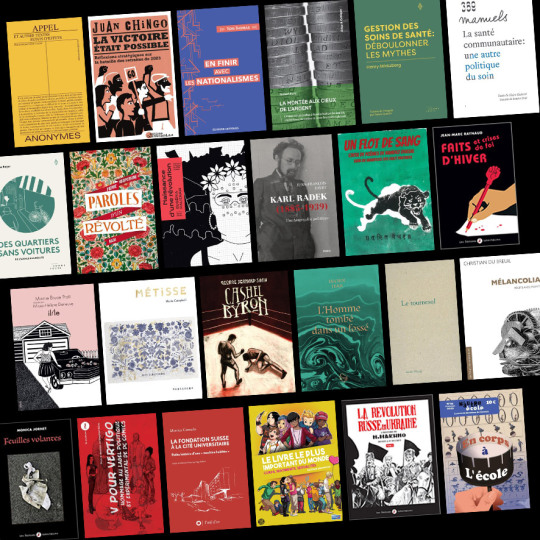
★ Les nouveautés de nos éditrices et éditeurs sorties le 25 août 2023 > bit.ly/hobo-25aout2023
ANONYMES, Appel, Divergences
Juan CHINGO, La victoire était possible, Communard.e.s
Tom THOMAS, En finir avec les nationalismes, Éditions Critiques
Robert KURZ, La Montée aux cieux de l’argent, Crise & Critique
Claire RICHARD, La Santé communautaire : une autre politique du soin, 369 éditions
Henry MINTZBERG, Gestion des soins de santé, Somme toute
Stéphane BOYER, Des quartiers sans voitures, Somme toute
Jean-Marc RAYNAUD, Faits d’hiver et crises de foi, Éditions libertaires
Pierre KROPOTKINE, Paroles d'un révolté, Nada
Eugénia PALIERAKI, Naissance d'une révolution, Terres de Feu
Jean-François FAYET, Karl Radek, Smolny
Namdeo DHASAL, Un flot de sang, L’Asymétrie
Minnie Bruce PRATT, il/le, Blast
Maria CAMPBELL, Métisse, Dépaysage
George Bernard SHAW, Cashel Byron, Lapidaires
Lucien JEAN, L’Homme tombé dans un fossé, Lapidaires
Christian DU BREUIL, Melancolia, Ravin bleu
Jackie WANG, Le Tournesol, Éditions du commun
Monica JORNET, Feuilles volantes, Éditions libertaires
Siegfried WÜRTZ, V comme Vertigo, Le Murmure
Monica CORRADO, La Fondation suisse à la Cité universitaire, L’Oeil d’Or
Nathalie SIMONSSON, Le livre le plus important du monde, Goater
Jean-Pierre DUCRET, La Révolution russe en Ukraine, tome 2, Éditions libertaires
Collectif, N'autre école N°21, Questions de classe(s)
« Peuple, conscience, fusil, MIR ! MIR ! MIR ! » Avant son anéantissement par le coup d’État de Pinochet le 11 septembre 1973, le Chili a vécu une révolution sociale hors du commun. L’histoire d’une génération militante se dessine… ancrage dans les quartiers, recours à la violence ou rapport aux institutions : autant de questions stratégiques clés qui demeurent pertinentes, un demi-siècle plus tard, alors que le Chili connaît de nouveaux soulèvements populaires. Eugénia Palieraki, Naissance d'une révolution - Histoire critique du MIR chilien, terres de Feu.
0 notes
Video
vimeo
Club Palace from Caravane on Vimeo.
Behind the scenes : vimeo.com/260446992
Club Palace is a short dream like voyage in which the viewer is the protagonist. As if in a dream, we are drawn through a series of surreal spaces where light, sound and gravity trick our senses. Through a progressive journey from confined spaces to an imaginary open world, Club Palace guides you on a course focused on exploration, curiosity and the unknown.
A film by : Caravane Studio, Camille Boyer, Nik Mirus
Production: l’Éloi (Éloi Beauchamp, Sébastien Hotte) Directors: Caravane Studio : Jean-Constant Guigue & Francis Dakin-Côté (l’Éloi) Art director: Camille Boyer (l’Éloi) Director of photography: Nik Mirus (l’Éloi)
Music: Loïc Ouaret Key grip: Pierre-Luc Bouchard Electro: Amélie Douville, Jean-Martin Landry, Cédric Dupuis Camera assistant: Gérardo Alcaine Swing : Alexis Belhumeur Assistant art director: Bastien Collard Texture artist: Marc O’brien Stop motion animation: Rodrigo Sergio Eguren Raez, Jean-Constant Guigue, Francis Dakin-Côté, Bastien Collard, Camille Boyer Post-production : Caravane (Francis Dakin-Côté) Title design : Olivier Charland
Special thanks to our art department volunteers : Rodrigo Sergio Eguren Raez, Ashley Olivieri, Marie Ebiner, Camille Bégin, Florine Pellachin, Guillaume Riopel, Vincent Malo, Marianne Stratis, Catherine Lévesque
0 notes